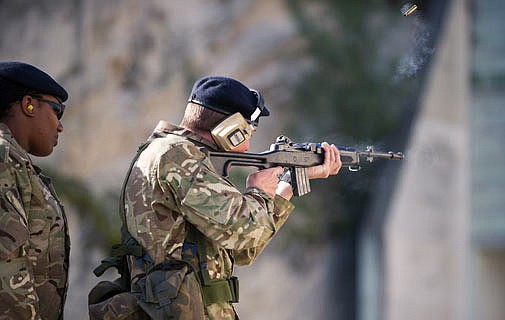December 18, 2013 at 1:49 p.m.
Dear Sir,
We eight ex-Bermuda Regiment Colonels warned last week that doing away with conscription in Bermuda would, over time, spell the death of the Regiment.
The response was as we expected — we have received many messages of agreement and support both from old soldiers and civilian members of the community. The last opinion poll that was published showed that the great majority of Bermudians support conscription, so that was no surprise.
Some who don’t agree with conscription feel that requiring military service of young Bermudians is contrary to their human rights. They forget that there are other examples of compulsory service in every community in the world. People must serve on juries, for example. Children in most countries are made to go to school.
Are those things wrong, too? Of course not – countries could not run properly without them.
Our very firm belief is that this country won’t run nearly as well as it does without the Regiment. Soldiers perform four types of service for the community, which are listed in the Defence Act – helping the police in times of civil unrest is the most important.
Is Bermuda now beyond civil unrest? Is there anyone who can say we will never be used in that role again? We don’t think so. Gang violence is to us a strong indicator that Bermuda hasn’t become so peaceful that we’ll never see riots again. Riots are unpredictable, they occur in a flash, as witnessed in the United Kingdom last year. A strong, capable Regiment assures citizens that order will prevail over chaos.
But those Bermudians who have served as leaders in the Regiment – and there are many hundreds of them now, nearly 50 years after the Regiment was formed – know there are roles we play in the community that aren’t listed in the Defence Act, that are just as important to the community as supporting the police, or helping with hurricanes.
Bermuda has no social mixing machine like the army! It doesn’t matter how much money your parents have or where you went to school. In the conscript Regiment, rich and poor, black and white, privileged and underprivileged all work together. They wear the same clothes, sleep next to each other, eat the same food, and share the same experiences. Lifelong friendships are formed across traditional barriers.
The aim with much of the training in the Regiment is to teach discipline and self-reliance. Our experience is that very few in the batch of new recruits that run into Warwick Camp every January have been taught how to stand on their own two feet by their families. Loving parents cater to their every need. That’s perfectly understandable, of course, but it produces emotionally soft young people who don’t know very well how to deal with the world.
We think the anger they sometimes display stems from that lack of knowledge. We think they are sometimes disrespectful because they don’t know how to be respectful. We think they have no idea what they are capable of doing, because they have never needed to try very hard to do anything. We think that in this small, insular island, their easy way of life is subverting their ability to succeed in the world.
Army training tries to remedy those failings, and succeeds not always, but very often and sometimes to an extraordinary degree. The country is certainly the better for it.
To summarise, we believe that apart from the important roles the Regiment must be able to carry out for the well-being of the country, the Regiment also makes a tremendously valuable contribution to the strength of Bermuda’s social fabric, a strength we cannot afford to lose. n
— Lt Col Michael Darling, Lt Col CE Raynor, Lt Col Gavin Shorto, Lt Col Allan Rance, Lt Col Patrick Outerbridge, Lt Col David Gibbons, Lt Col William White and Lt Col Brian Gonsalves.

Comments:
You must login to comment.